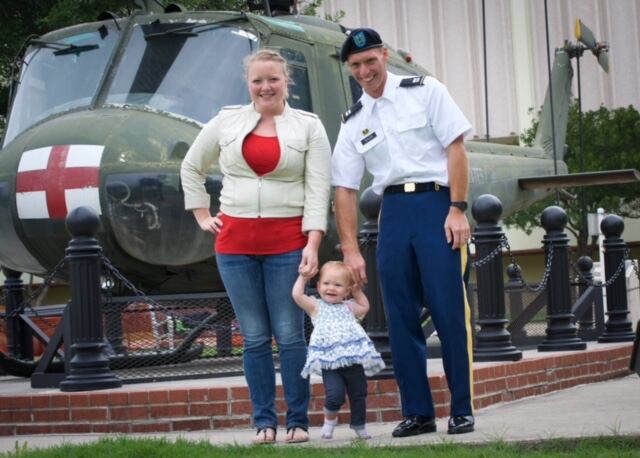An emergency fund gives you a cushion to deal with all sorts of unexpected financial setbacks, whether it’s those extra expenses during a military move, the loss of a spouse’s job, sudden car repairs ... the list goes on.
It’s an important foundation for your financial well-being, and can help avoid stress. “It keeps you from having to use a credit card, borrow from friends or family or sell something when life throws you a financial curveball,” said JJ Montanaro, a certified financial planner with USAA’s Military Advocacy Group.
“As an added benefit, it can head off arguments on the home front,” he said. “If you’re able to respond to a financial mishap by using savings, it’s still painful, but definitely less stressful.”
Montanaro suggests eventually accumulating a fund that could cover three to six months’ worth of living expenses such as rent or mortgage, car payments, utility bills, groceries and other costs.
“Despite a secure paycheck, if I were looking at the nuances of military service and an emergency fund, I would favor the high side of the emergency fund spectrum,” Montanaro said. “The one certainty about military service is that we all eventually take off the uniform, and having a year’s worth of expenses covered can make the difference between landing a dream job and having to take the first paycheck you can find.”
For many people, accumulating that cash is not something that can happen overnight. For example, if your rent and utilities are $1,500 a month, your car payment is $200, and groceries are $500, that’s $2,200, for starters. A three-month stash would be $6,600.
The important thing is to make a start; $500 to $1,000 can make a difference. Could you manage $1.37 a day, or $42 a month? That adds up to $500 in a year’s time.
“We suggest building an emergency fund of $1,000 before paying more than minimums on existing loans and debts,” said Eric Smith, a retired Army colonel who is military adviser for Dave Ramsey’s Financial Peace Military. “We suggest building the fund from existing savings, sale of stuff or picking up an extra job.”
After you build that minimum, then focus on knocking out the debt, Smith and Montanaro said.
“It’s hard to justify having a lot of cash sitting on hand earning a paltry return when you’re paying big-time interest on a credit card,” Montanaro said. “However, building a small emergency fund can keep you from adding to that debt, create a good habit, and be a foundation to build on once the debt is in your rearview mirror.”
RELATED

Some tips:
Get separation. Make sure you can get to the emergency fund money in a hurry if you truly need it. But as you see the money growing, don’t be tempted to go out and buy some cool toy.
Montanaro said one military spouse recently told him her family set up a savings account at a separate bank, making it more difficult for them to see or access the money unless there was a real emergency.
Do a reality check. Could you shave a few dollars off your expenses each day by cutting out specialty coffees and bringing your lunch to work, for example? Could you use more coupons for needed items? Starting with a small goal can help you be more successful, and spur you to save more.
Keep track. Did you use a $1 coupon or skip the $3 coffee? Track how much you’ve saved each day, put that amount into a jar, and take the jar’s contents to the bank every week. Or, transfer that amount from your regular checking account to your emergency fund account.
Check those bills. Could you lose some of those cable channels? Are you using all the streaming services (Netflix, Hulu) that you’re paying for each month? Could you switch to a cheaper cellphone plan, or maybe skip a few on demand pay-per-view movies? A few small trims can add up.
Comparison shop. Whether you’re buying groceries or tires, do your research. Check out your military benefits: the commissary, the military exchange stores online and brick-and-mortar, the MWR tickets and tours office with travel discounts, the DoD digital library with everything from audiobooks to academic research materials ... Military OneSource is a good place to start.
RELATED

Doesn’t hurt to ask. Find out whether a business offers a military discount. If they don’t, you’ve lost nothing. If they do, put the money you’ve saved into your rainy day fund.
Seek help. If a financial emergency strikes and you don’t have the money to pay for it, contact your military relief society to see whether you might qualify for emergency financial assistance in the form of a no-interest loan or a grant. They’re there to help in true emergencies: Army Emergency Relief, Navy-Marine Corps Relief Society, Air Force Aid Society.
Karen has covered military families, quality of life and consumer issues for Military Times for more than 30 years, and is co-author of a chapter on media coverage of military families in the book "A Battle Plan for Supporting Military Families." She previously worked for newspapers in Guam, Norfolk, Jacksonville, Fla., and Athens, Ga.




